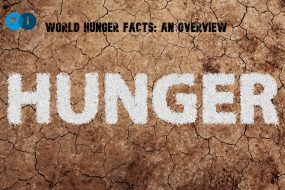Eating a balanced diet is essential for maintaining a healthy lifestyle. A balanced diet means consuming a variety of nutrient-dense foods in the right proportions to provide your body with all the essential nutrients it needs. In this article, we’ll discuss the importance of a balanced diet, what it entails, and how it can help you achieve optimal health.
Why is a balanced diet important?
A balanced diet provides the body with the essential nutrients it needs to perform various functions, such as maintaining a healthy weight, building and repairing tissues, producing energy, and supporting the immune system. Additionally, eating a balanced diet can also reduce the risk of chronic diseases, such as heart disease, diabetes, and some forms of cancer.
Moreover, a balanced diet can also help improve mental health and cognitive function. Proper nutrition is essential for brain development and function, and a lack of essential nutrients can lead to mood swings, poor concentration, and decreased cognitive function.
What is a balanced diet?
A balanced diet is composed of a variety of foods from different food groups, consumed in the right proportions. The following are the key components of a balanced diet:
- Carbohydrates: Carbohydrates are the body’s primary source of energy. They are found in foods such as bread, pasta, rice, potatoes, and fruits.
- Proteins: Proteins are essential for building and repairing tissues, and for producing hormones and enzymes. Good sources of protein include meat, fish, poultry, eggs, dairy products, and legumes.
- Fats: Fats are essential for the absorption of fat-soluble vitamins and minerals, and for insulation and cushioning of vital organs. Good sources of healthy fats include avocados, nuts, seeds, olive oil, and fatty fish such as salmon.
- Vitamins and Minerals: Vitamins and minerals are essential for various functions in the body, such as maintaining healthy skin, bones, and vision. Good sources of vitamins and minerals include leafy green vegetables, fruits, and dairy products.
- Fiber: Fiber is important for maintaining a healthy digestive system and reducing the risk of heart disease and diabetes. Good sources of fiber include whole grains, fruits, vegetables, and legumes.
How to achieve a balanced diet?
Achieving a balanced diet is not difficult, but it requires some planning and discipline. The following are some tips to help you achieve a balanced diet:
- Eat a variety of foods: Consume a variety of foods from different food groups to ensure that you get a balance of essential nutrients.
- Choose nutrient-dense foods: Focus on eating nutrient-dense foods that are high in vitamins, minerals, and fiber and low in added sugars, saturated and trans fats, and sodium.
- Control portion sizes: Eat moderate portion sizes, and avoid overeating, to maintain a healthy weight.
- Limit processed foods: Processed foods are often high in added sugars, saturated and trans fats, and sodium, and are generally low in essential nutrients. Limit your consumption of processed foods and choose whole foods instead.
- Hydrate: Drink plenty of water throughout the day to stay hydrated and support a healthy diet.
- Limit added sugars: Added sugars can contribute to weight gain and increase the risk of chronic diseases. Limit your consumption of foods and beverages that are high in added sugars.
- Reduce saturated and trans fats: Saturated and trans fats can increase the risk of heart disease and stroke. Choose unsaturated fats instead, such as olive oil and fatty fish
- Limit sodium intake: High sodium intake can increase blood pressure and the risk of heart disease and stroke. Choose foods that are low in sodium and avoid adding salt to your food.
- Eat regularly: Eating regularly can help regulate your appetite, maintain stable blood sugar levels, and provide a steady supply of energy throughout the day.
- Plan your meals: Planning your meals can help you make healthier food choices and ensure that you get a balanced diet. Make a grocery list and plan your meals for the week in advance.
Conclusion
Eating a balanced diet is essential for maintaining a healthy lifestyle and reducing the risk of chronic diseases. A balanced diet includes a variety of nutrient-dense foods from different food groups, consumed in the right proportions. By following some simple tips, such as choosing nutrient-dense foods, controlling portion sizes, and limiting processed foods and added sugars, you can achieve a balanced diet and enjoy optimal health.




